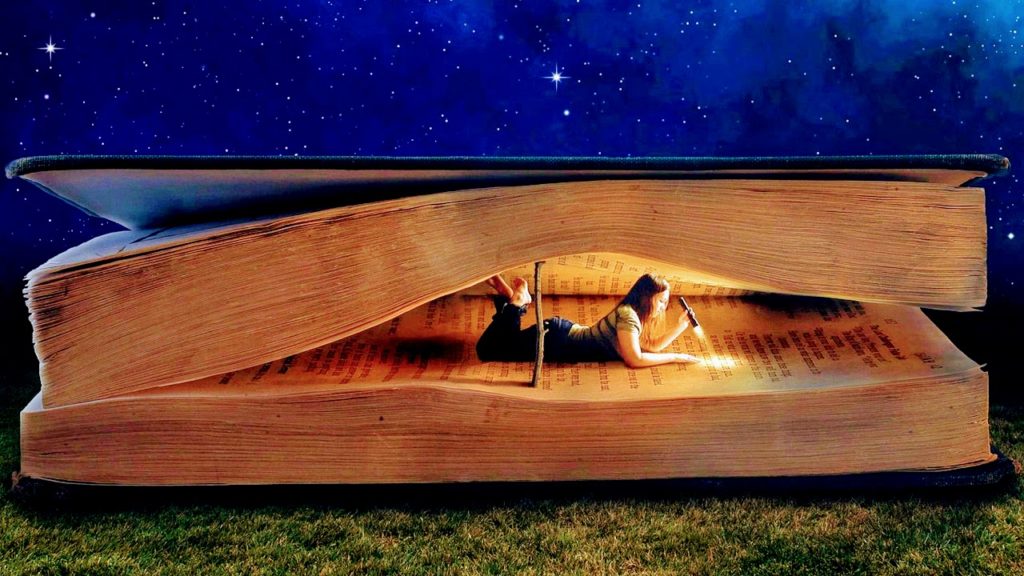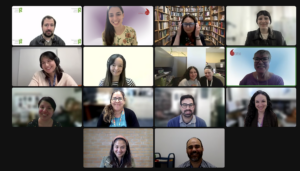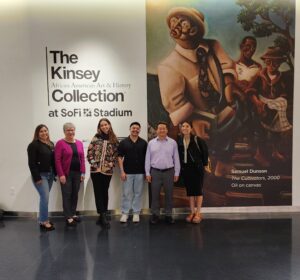We, at California Humanities love books, and we thought we’d share with you what we’re currently reading, or hope to be reading over the summer months.
Renée Perry is reading the following:
Mastry – catalog of Kerry James Marshall show (yes, catalogs count as reading material when they are half essays) 
When I was in LA for the May board meeting, a friend took me over to MoCA for this show. Marshall has been painting since the 70s and is much less well-known than he should be. His work combines a deep awareness of art history and the peculiar history of African American and how we’re portrayed, visually and as narratives.
Where I Was From – Joan Didion 
The first Joan Didion book I read was The White Album and then sometime after that Slouching Towards Bethlehem. I lived on the east coast then. All I knew about California was Life Magazine stories, which where mainly pictures about hippies and Hollywood. Didion’s essays painted a darker and more complicated place. The sense of anxiety and dislocated dread in the title essay in The White Album is very much of its time and place. I love how Didion can capture a place and the elusive sense of place, which is more than simple description. Where I Was From has been on my reading list for a while and seems very much a summer book.
Julie Fry is reading the following:
The Ministry of Utmost Happiness – Arundhati Roy 
The Ministry of Utmost Happiness takes us on an intimate journey of many years across the Indian subcontinent—from the cramped neighborhoods of Old Delhi and the roads of the new city to the mountains and valleys of Kashmir and beyond, where war is peace and peace is war. The tale begins with Anjum—who used to be Aftab—unrolling a threadbare Persian carpet in a city graveyard she calls home. It is an aching love story and a decisive remonstration, a story told in a whisper, in a shout, through unsentimental tears and sometimes with a bitter laugh.
I Been in Sorrow’s Kitchen and Licked Out All the Pots – Susan Straight
A historic novel about a young woman forced to grow up quickly, and whose life—as well as those of her twin sons—changes with the current of the times. Beginning in the late 1950s, this novel tells the story of Marietta Cook, a tall girl growing up in Pine Gardens, a Gullah-speaking village in South Carolina. When Marietta’s mother passes, she heads to Charleston in search of her uncle—only to find a lover and return pregnant with twins two years later. She raises her sons back home in the low country before moving the family to Charleston, where she takes a growing interest in football and the civil rights movement. The boys grow huge and talented at the game, playing pro football in California. A new world and new travails await, but Marietta’s great resilience endures.
The Beautiful Things That Heaven Bears – Dinaw Mengsetu
Seventeen years ago, Sepha Stephanos fled the Ethiopian Revolution for a new start in the United States. Now he finds himself running a failing grocery store in a poor African-American section of Washington, D.C., his only companions two fellow African immigrants who share his bitter nostalgia and longing for his home continent. Years ago and worlds away Sepha could never have imagined a life of such isolation. As his environment begins to change, hope comes in the form of a friendship with new neighbors Judith and Naomi, a white woman and her biracial daughter. But when a series of racial incidents disturbs the community, Sepha may lose everything all over again.
 The Past is a Foreign Country – David Lowenthal
The Past is a Foreign Country – David Lowenthal
This book is always worth re-reading every few years. The past remains essential – and inescapable. A quarter-century after the publication of his classic account of man’s attitudes to his past, David Lowenthal revisits how we celebrate, expunge, contest and domesticate the past to serve present needs. He shows how nostalgia and heritage now pervade every facet of public and popular culture. History embraces nature and the cosmos as well as humanity. The past is seen and touched and tasted and smelt as well as heard and read about. Empathy, re-enactment, memory and commemoration overwhelm traditional history. A unified past once certified by experts and reliant on written texts has become a fragmented, contested history forged by us all. New insights into history and memory, bias and objectivity, artefacts and monuments, identity and authenticity, and remorse and contrition, make this book once again the essential guide to the past that we inherit, reshape and bequeath to the future.
Lucy Boltz is reading the following:
The Gift –Barbara Browning.  In the midst of Occupy, Barbara Andersen begins spamming people indiscriminately with ukulele covers of sentimental songs. A series of inappropriate intimacies ensues, including an erotically charged correspondence and then collaboration with an extraordinarily gifted and troubled musician living in Germany.
In the midst of Occupy, Barbara Andersen begins spamming people indiscriminately with ukulele covers of sentimental songs. A series of inappropriate intimacies ensues, including an erotically charged correspondence and then collaboration with an extraordinarily gifted and troubled musician living in Germany.
The Sovereign –Andrew Elias Colarusso. The Sovereign is an extended meditation on what it means to be ecstatically free―and the blood price a people must pay for that freedom.
Anoop Kaur is reading the following:
Profit Over People –Noam Chomsky. Noam Chomsky takes on neoliberalism: the pro – corporate system of economic and political policies presently waging a form of class war worldwide. By examining the contradictions between the democratic and market principles proclaimed by those in power and those actually practiced, Chomsky critiques the tyranny of the few that restricts the public arena and enacts policies that vastly increase private wealth, often with complete disregard for social and ecological consequences.
Exit West –Mohsin Hamid. In a country teetering on the brink of civil war, two young people meet—sensual, fiercely independent Nadia and gentle, restrained Saeed. They embark on a furtive love affair and are soon cloistered in a premature intimacy by the unrest roiling their city.
Homegoing–Yaa Gyasi.Ghana, eighteenth century: two half sisters are born into different villages, each unaware of the other. One will marry an Englishman and lead a life of comfort in the palatial rooms of the Cape Coast Castle. The other will be captured in a raid on her village, imprisoned in the very same castle, and sold into slavery.





